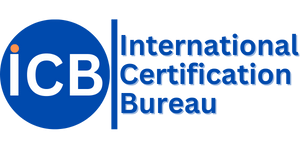An official RoHS certification serves as evidence that a product adheres to the Restriction of Hazardous Substances directive. This directive prohibits the use of lead, mercury, cadmium, and other potentially harmful materials in electronic and electrical equipment, ensuring their safety for use and minimal environmental impact. Manufacturers and distributors aiming to market their goods in the European Union or other regions with similar regulations must obtain this certification.
Industries and Companies Affected by RoHS
RoHS compliance is crucial for various industries and businesses involved in the production or sale of electrical and electronic equipment. This encompasses industrial machinery manufacturers, medical device producers, consumer electronics companies like smartphone and computer manufacturers, among others. Compliance is particularly vital for entities selling products in the EU due to legal requirements. With numerous other nations adopting similar laws, RoHS compliance has become essential for businesses operating globally. Examples of companies subject to RoHS regulations include Apple, Samsung, Dell, HP, and Siemens, spanning from startups to multinational corporations across diverse sectors.
Types of RoHS Certifications
The RoHS directive has evolved through several iterations, including RoHS 1, RoHS 2, and RoHS 3, each broadening its scope:
- RoHS 1: Introduced in 2002, RoHS 1 restricted six hazardous materials in electrical and electronic equipment (EEE). Compliance became mandatory for products sold in the EU market after July 1, 2006, aimed at safeguarding human health and the environment.
- RoHS 2: Implemented in July 2011, RoHS 2 extended requirements for EEE importers and manufacturers, expanding product categories covered. It also introduced compliance dates for specific categories and offered exemptions for certain equipment.
- RoHS 3: Updated in 2015, RoHS 3 added four additional substances, with its enforcement starting from July 22, 2019, encompassing new product categories like e-cigarettes and electric vehicles.
RoHS Audit Criteria
RoHS audit criteria establish standards for assessing compliance with RoHS requirements, including verifying restricted substance limits and ensuring documentation of compliance. Auditors may evaluate product design, labeling, packaging, and quality management systems to ensure ongoing compliance, aiming to promote safer and environmentally friendly product manufacturing.
RoHS Audit and Accreditation Process
The RoHS audit and accreditation process involves several steps, beginning with audits to determine compliance. Corrective actions, if needed, are identified, and once addressed, manufacturers can apply for RoHS accreditation. Certification organizations evaluate adherence to the directive and issue compliance certificates. Regular surveillance audits ensure continued compliance, enhancing product marketability and consumer trust by demonstrating adherence to RoHS standards.
Benefits of RoHS Certification
RoHS certification offers numerous benefits for companies manufacturing or selling electrical and electronic equipment (EEE):
- Provides assurance of compliance with regulations and sustainable production processes.
- Enhances consumer confidence and satisfaction by guaranteeing product quality.
- Promotes environmental and public health protection through restricted hazardous material usage.
- Offers a competitive edge by showcasing commitment to quality, sustainability, and social responsibility.
When RoHS Certifications Are Required
RoHS certifications are mandatory for products sold within the EU falling under RoHS-regulated categories. These regulations restrict hazardous substances in electrical and electronic equipment, necessitating compliance to avoid penalties, legal repercussions, and damage to reputation.
Accrediting Body for RoHS Certifications
National and international accreditation bodies, such as the United Kingdom Accreditation Service (UKAS) and the International Accreditation Forum (IAF), accredit certification bodies issuing RoHS certifications. These organizations evaluate product compliance with RoHS directives, ensuring adherence to hazardous substance restrictions. Certification bodies like TÜV Rheinland, SGS, Bureau Veritas, and UL issue RoHS certifications.
Similar Certifications and Accreditations to RoHS
Various certifications and accreditations, such as REACH, WEEE, ELV, EPEAT, TCO Certified, and Energy Star Certification, regulate hazardous material usage across industries, promoting environmentally responsible practices.
Other Relevant Certifications
Additional certifications, including WEEE, REACH, ISO 14001, HACCP, among others, cater to businesses using hazardous materials or prioritizing environmental responsibility. Each certification offers distinct requirements and advantages, allowing businesses to demonstrate their commitment to safety, quality control, and environmental stewardship.
